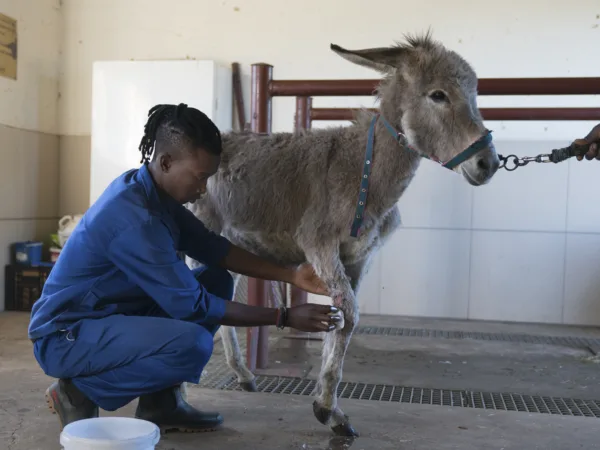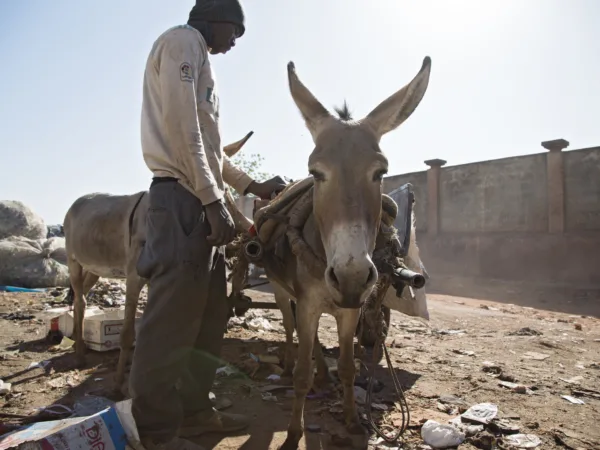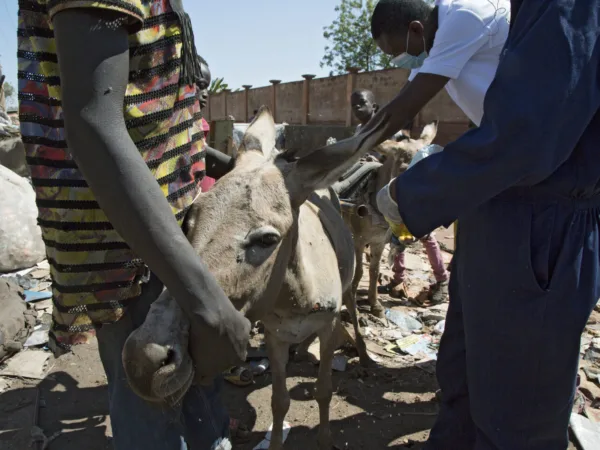Bruno the donkey’s tetanus risk
Find out how swift action from SPANA vets in Mali ensured an injured donkey working on rubbish dumps was protected from tetanus.
Every morning, Bruno the donkey pulls a cart up the mountainous slopes of waste at the Badalabougou rubbish dump in Bamako, Mali.
It’s a tough job in unimaginable conditions. As well as having to contend with the intense heat and smell, Bruno must navigate piles of hazardous waste, including shards of glass and sharp scraps of rusting metal.
One morning, Bruno was making his way across the dump when he suddenly found himself knee-deep in waste. With the help of his owner, Drissa, Bruno managed to work his way free, but he emerged with two nasty cuts on his legs from a sharp object hidden under the rubbish. In places like rubbish dumps, open wounds can lead to deadly infections, such as tetanus, and Drissa knew that immediate help was needed.
Tetanus is a bacterial infection that thrives in dirty environments and can enter the body through even the smallest graze or cut. Without urgent treatment, tetanus can cause severe muscle spasms, and can often be fatal for working animals.
Drissa wasted no time in taking Bruno to SPANA’s veterinary centre in Bamako for treatment. At the centre, SPANA vets examined Bruno and set about cleaning and treating the cuts on his legs. They gently cleaned each wound with a disinfectant wash, then dressed them with soft bandages. Bruno was given anti-inflammatory medication to prevent any pain and swelling. Crucially, a tetanus anti-toxin and vaccination were also administered to protect Bruno against tetanus in the future.
The vets advised Drissa that Bruno would need at least three weeks of rest until his cuts were completely healed. They also showed him how to change Bruno’s bandages.
Drissa, who is able to earn a small income with the help of Bruno, said: ‘The rubbish dump can be a dangerous place. I’m thankful that SPANA was able to help my donkey quickly.’
Thanks to your support, we are able to protect Bruno and the hundreds of donkeys who work on Bamako’s rubbish dumps from the deadly threat of tetanus. Your kindness allows our vets to make regular visits to the dumps to provide vital treatment to sick or injured donkeys, and to vaccinate them against this life-threatening infection. Thank you for your ongoing support.



